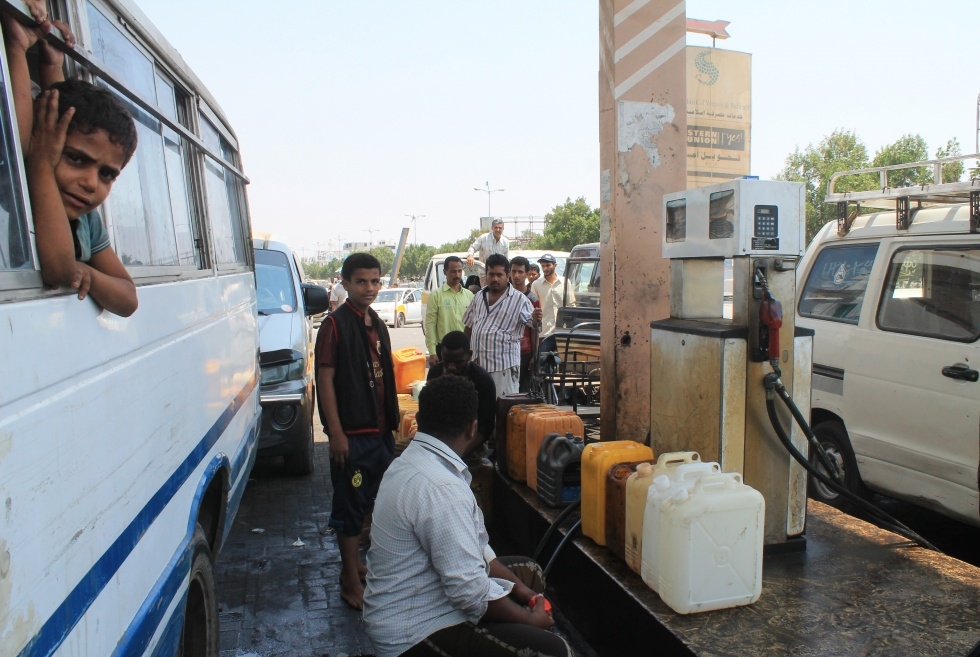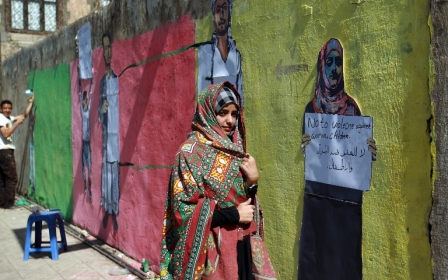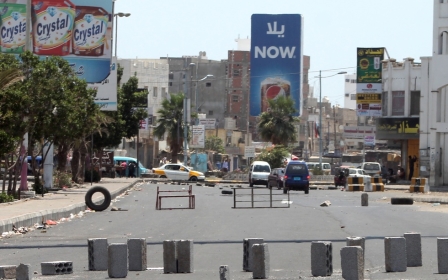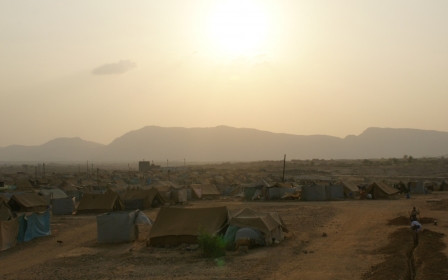Voices from Aden: Frontline in the struggle for Yemen

Yemen's city of Aden, a vibrant Arabian Sea port for centuries, is emerging as a key battleground in the fight between a Saudi-led Arab coalition backing the country's president and Shiite Houthi militants and their allies.
The coalition is considering landing ground troops in the city to help secure a return of President Abd Rabbo Mansour Hadi, who was forced to flee the country by boat from Aden this week.
On Friday, heavy gunbattles raged in northern neighborhoods of the city between pro-Hadi militias and military units loyal to Hadi's predecessor, ousted autocrat Ali Abdullah Saleh, who is allied to the Shiite fighters known as Houthis.
Snipers of Saleh's forces were firing from rooftops, and bodies of fighters were seen in the streets.
Middle East Eye spoke to two Yemenis in Aden who had been caught up in the clashes engulfing their city.
Ahmed al-Sadeq (not his real name), a 30-year-old translator who lives in al-Mansura district said: "The Houthis are Yemenis, like us. But I do not want to be ruled by them. The people of Aden are worried about what will happen in the future: what they will eat, what they will drink."
Basma Qassim, a 20-year-old sociology student who grew up in New York, said she had fled Aden with her family on Thursday after an airstrike destroyed a hotel near her home. "I saw this orange and red flare, then I heard a boom; it shook my house." Qassim said that the Houthis were embedding themselves in the city. "The problem is that the Houthis are situated in every area ... They're hiding weapons in the basement of restaurants".
New MEE newsletter: Jerusalem Dispatch
Sign up to get the latest insights and analysis on Israel-Palestine, alongside Turkey Unpacked and other MEE newsletters
Middle East Eye delivers independent and unrivalled coverage and analysis of the Middle East, North Africa and beyond. To learn more about republishing this content and the associated fees, please fill out this form. More about MEE can be found here.




